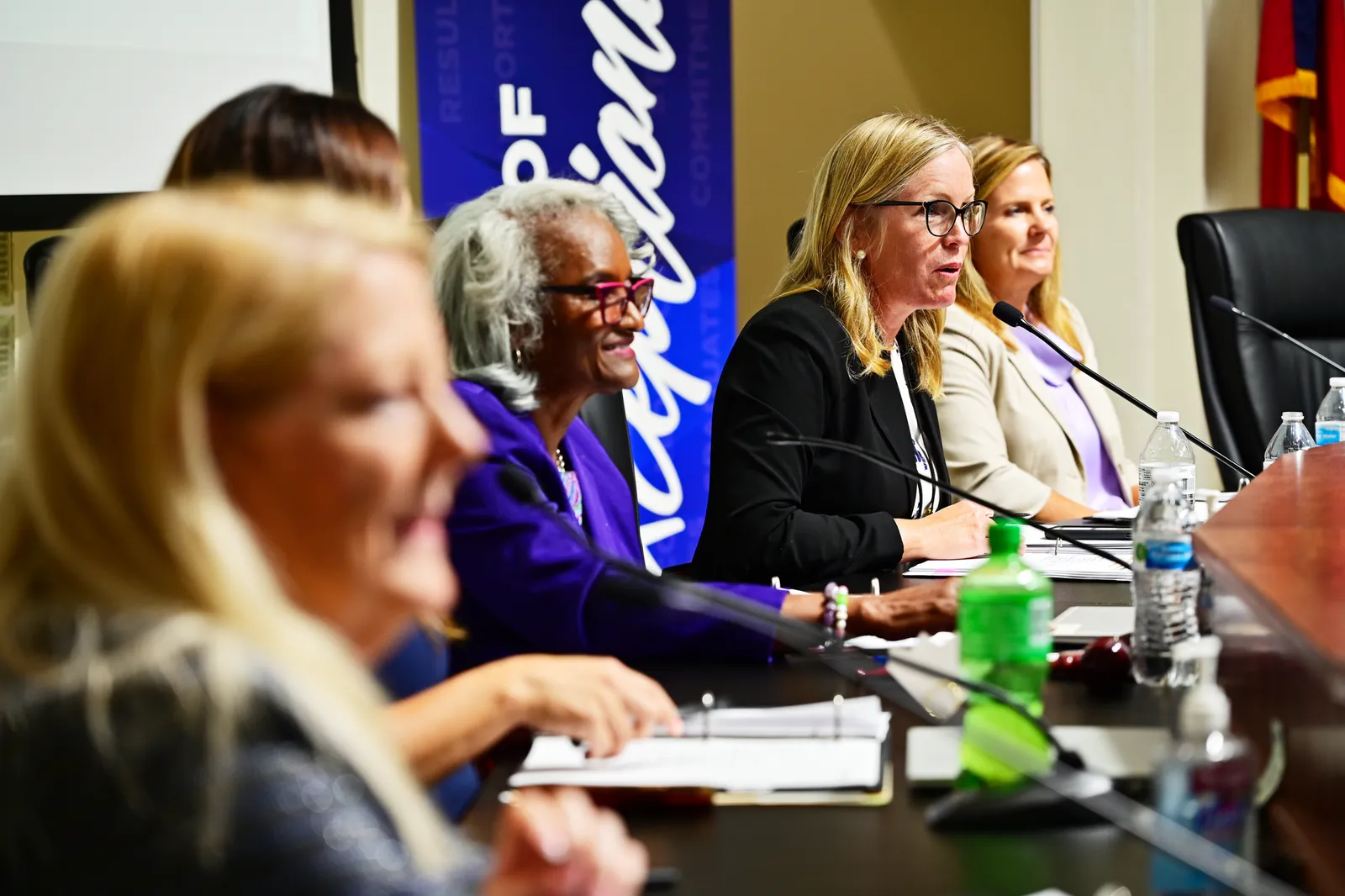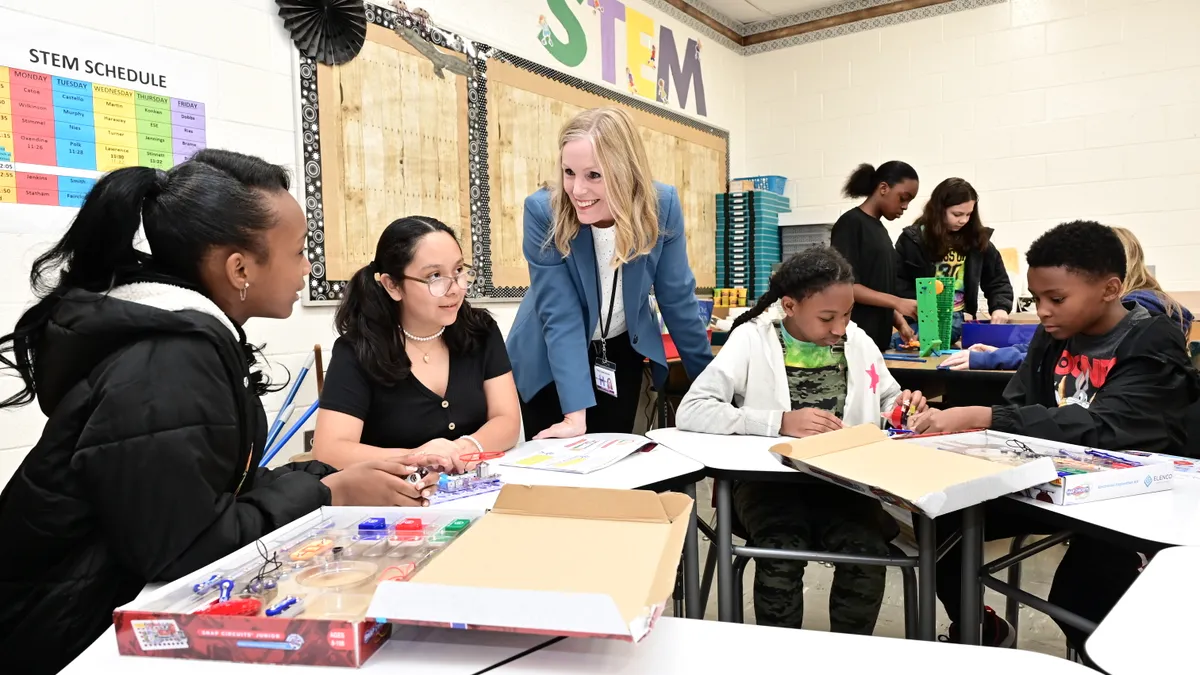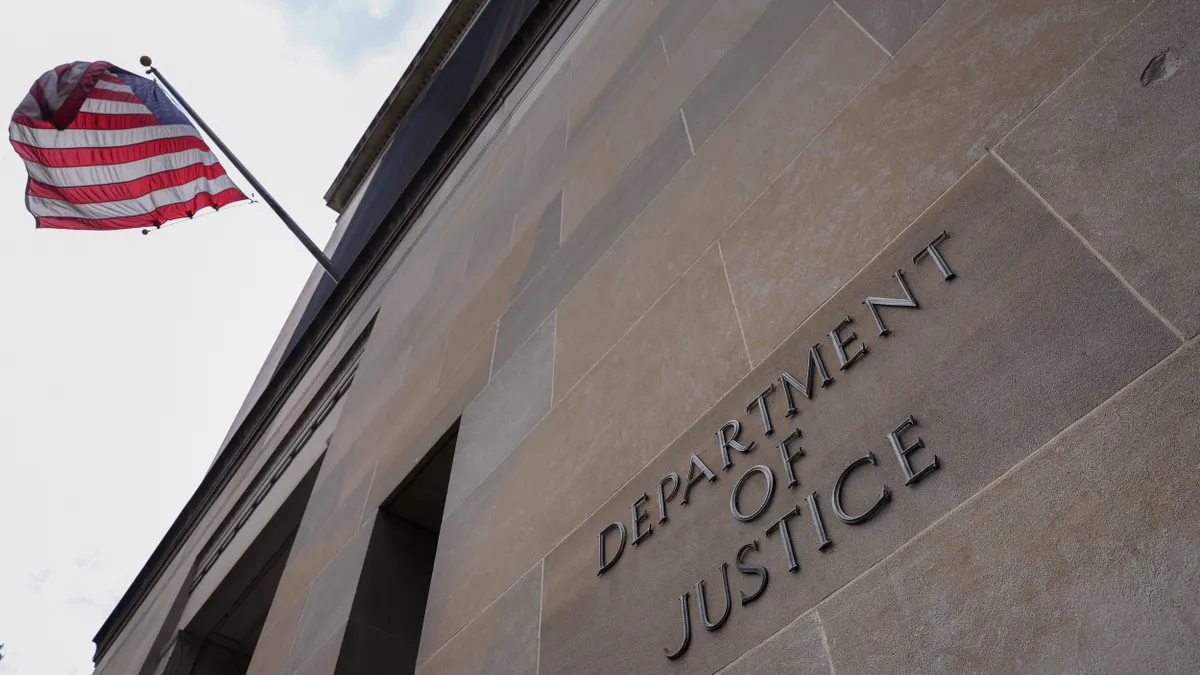Seven years ago, when Georgia’s Henry County Schools was searching for a new superintendent, school board member Pam Nutt witnessed an act of kindness at a science conference that, to this day, she said summarizes the character of Mary Elizabeth Davis — then the chief academic officer of nearby Cobb County School District.
“It was raining, and she was helping another staff member cross the campus,” Nutt says. “This is how classy she is. She was holding the umbrella so the other lady wouldn't have to do it.”
During her six years leading Henry County, Davis has amassed an impressive list of accomplishments.
The 52-school, 43,000-student district has seen an 11-point growth in state accountability measures. All previously “F” rated schools have been removed from the governor’s failing schools list. Student performance continued to climb despite disruptions caused by the COVID-19 pandemic, including an 8% increase in Algebra I performance from pre- to post-pandemic and continued growth in reading proficiency.
And while much of that success is a credit to Davis’ engagement of all levels of the school community — more on that in a minute — the groundwork started with the school board.
Improving school board dynamics and collaboration
Local demographics in Henry County, located on the southeastern side of Atlanta, were rapidly changing, with what had been a very red county becoming blue in a short period of time.
At the same time, the county’s Black and brown population saw a significant increase. Student demographics are currently 63% Black and 12% Hispanic, up from 52% Black and 9% Hispanic in October 2016, according to Georgia Department of Education data.
School board meetings were, as Davis describes them, very “high-energy,” with “very animated and emotional displays of perspective.”
Or as Nutt puts it, the board itself was in a state of dysfunction, with five different members representing five different parts of the county regularly presenting five different directions or points of view.

“You’re the governance team. How can we function if y’all don’t function?” Nutt recalls Davis asking.
As a result, Davis’ initial goal was clear: Work with the board to create a stable foundation around the core business of teaching and learning. And of course, while that’s easier said than done, the results speak for themselves in terms of what’s possible when stakeholders are willing to work through differences to progress toward a common goal.
To Davis, “a high-performing school district starts with a high-performing board of education, and a high-performing board of education works on the work of governance.”
“Her first action was to make sure everybody knew what their job was,” Nutt says. “And you talk about a big undertaking, because when you have folks that have been doing the job for 20 to 30 years, oh, well, you know, ‘We've always done it this way.’ And she said, ‘Well, that may be so, but that's not effective.’”
Citing a personal example, Nutt recalls that — prior to Davis’ hiring — she had a tendency to send questions directly to principals or department heads. Now, however, she funnels them through Davis, acknowledging that principals and other educators can’t fully perform their day-to-day job of running a school if they’re also fielding direct questions from board members.
To put it simply, according to Nutt, Davis approached the board members with respect as to where they each were coming from with their viewpoints and processes, and she managed up.
Together, Davis and the board went through the district’s policies and procedures manual, identifying what was outdated and building from there. They also examined all of the district’s schools to identify what did or didn’t work.
Ultimately, Davis says, they identified three core questions to align policy and budgeting priorities around:
- What do teachers teach?
- What do kids learn?
- What are the resources that are available to teachers and families in order to do that?
Engaging all stakeholders
Henry County Schools’ success under Davis is an undertaking that has required engagement from every corner of the school community. To help accomplish this, Davis has created a range of advisory groups for students, parents, teachers, principals and assistant principals.
“She's a transparent leader. She is consistently reaching out to all groups,” says Kesha Jones, principal of Eagle’s Landing High School. “She's just always creating a space of feedback and reflection. There isn't really anything that she does without soliciting the feedback of all of the stakeholders involved.”
The district culture was much different before Davis was hired, says Jones. The school community was previously accustomed to decisions being made and pushed down from the top, regardless of how anybody really felt about them.
Nutt adds that when Davis holds town halls, open houses or similar events, she ensures multiple times are scheduled to maximize opportunities for parents and other stakeholders to attend, learn and offer feedback.
“She’s open to talk. You can go by her office any time of the day and talk to her,” Nutt says. “If she's not there, she's at one of the schools walking around and popping into classrooms and teaching a class. She loves to get in and teach a class and talk to the students.”
Davis, a former chemistry teacher, says she is driven by a belief that “public education is the key to stabilizing and strengthening communities in America and is really the key service of a community.” And while she’s the first to admit that Henry County still isn’t immune to political disagreements and pushback, her level of engagement with the community and the results produced under her watch seem to have garnered a level of trust that eases much of that tension.
“If we hadn't gotten those results, then people would have questioned everything,” Davis says of progress made early in her tenure.
“She’s a little ray of sunshine,” says Glennis Grimwood, a parent in the district. “We love the fact that she is very receptive to feedback. She always seeks to understand. She’s a listener — you can always tell that she’s taking in everything that the person is saying. She’s very intentional.”
Adds Nutt: “I call her the Energizer Bunny, because she just keeps going and going and going and going.
“And she does it with a smile on her face. She's very positive. That's her way of inviting people to take part in education.”






 Dive Awards
Dive Awards













